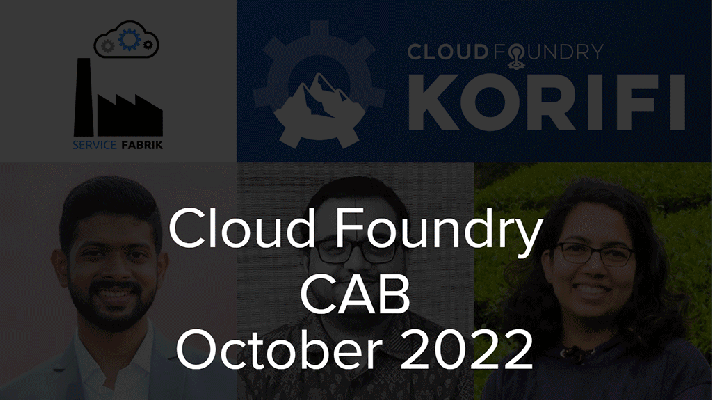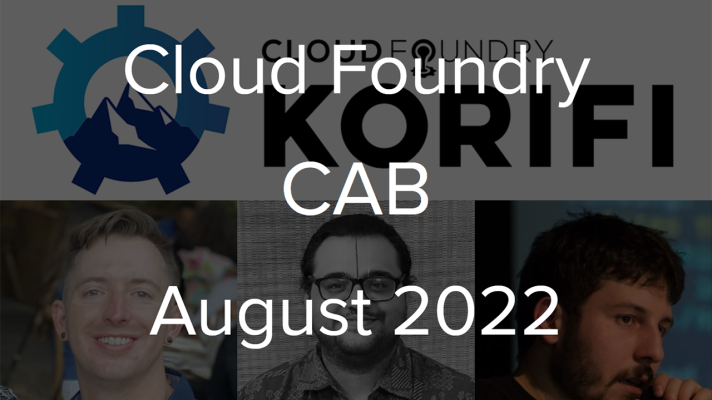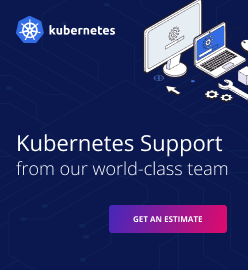Cloud Foundry Advisory Board Meeting, Nov 2017: a Web UI for CF!
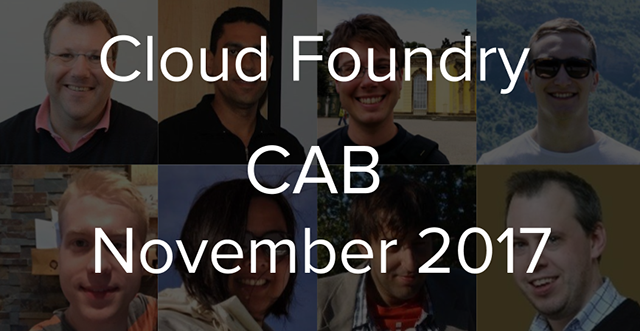
This month’s CAB call featured a demo of Stratos-UI, a multi-endpoint web interface for Cloud Foundry. The proposal comes from SUSE in an effort to provide an open source web-based user interface for Cloud Foundry deployments.
The call was led by IBM’s Michael Maximilien (aka Dr. Max). Members of Cloud Foundry development teams also posted their monthly updates.
Stratos-UI
The proposal to CF-Extentions aims “to provide a web-based UI to allow developers and administrators to manage their applications and Cloud Foundry deployments,” according to SUSE’s Neil MacDougall. Stratos-UI is part of the recently announced SUSE Cloud Application Platform.
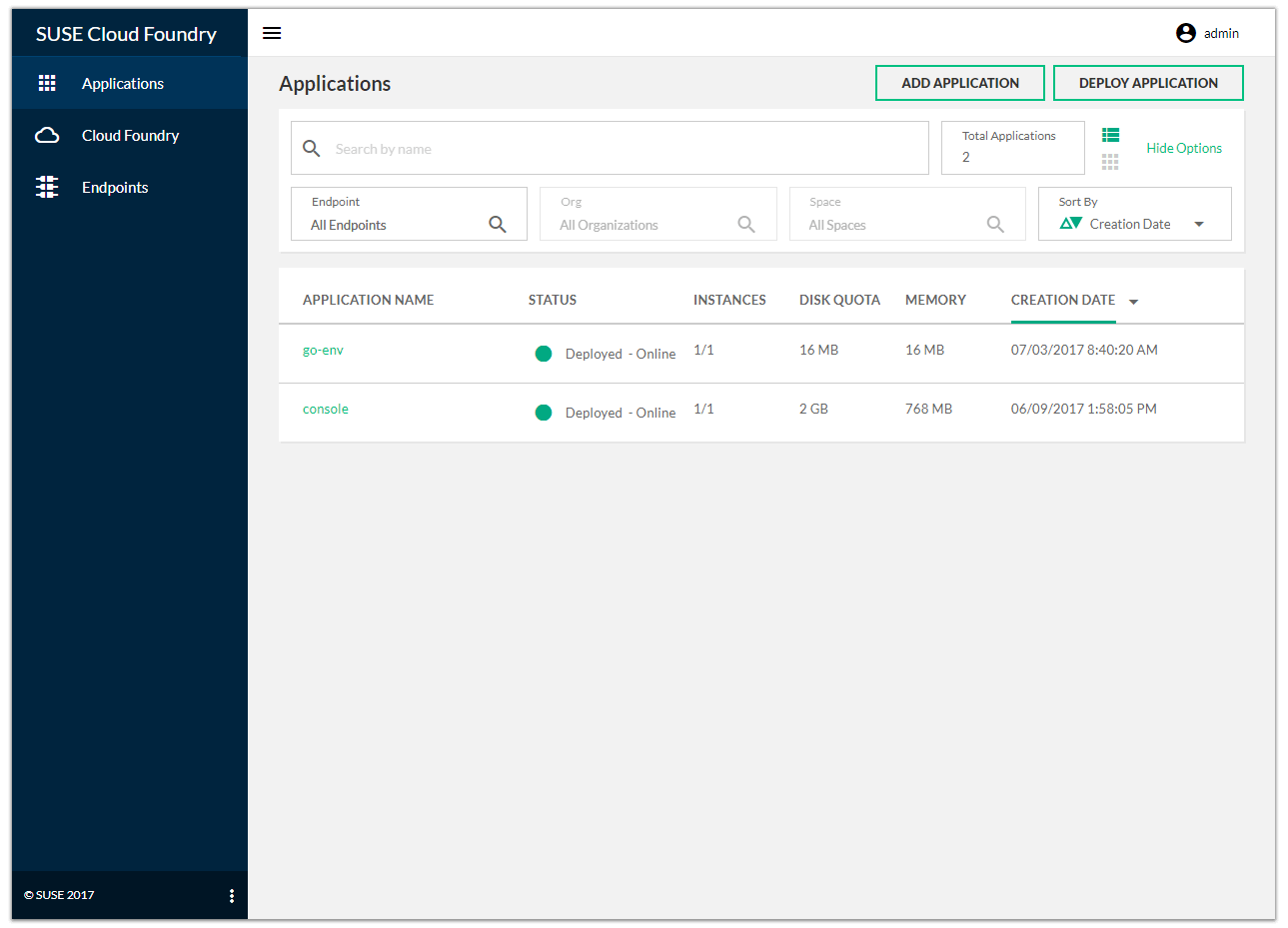 Web interface for Cloud Foundry (Source)
Web interface for Cloud Foundry (Source)Stratos-UI was developed around three assumptions:
- Cloud Foundry users want a web interface that can make use of features provided by the CLI client and the API.
- A web interface will bring in Cloud Foundry users who might otherwise be intimidated by the CLI client or the API.
- An open source web interface will improve usability across all Cloud Foundry users.
According to Neil, the proposal has the following goals:
- Expose all commonly users features available in the Cloud Foundry API
- Provide functionality for both end users and Cloud Foundry administrators through a common UI
- Operate against the endpoint of any certified Cloud Foundry distribution or service
- Flexible mechanisms of deployment (deploy via BOSH or as a Cloud Foundry app)
- Supports management of multiple Cloud Foundry instances through a single deployment of the UI
- Can easily be configured by vendors and users for their needs
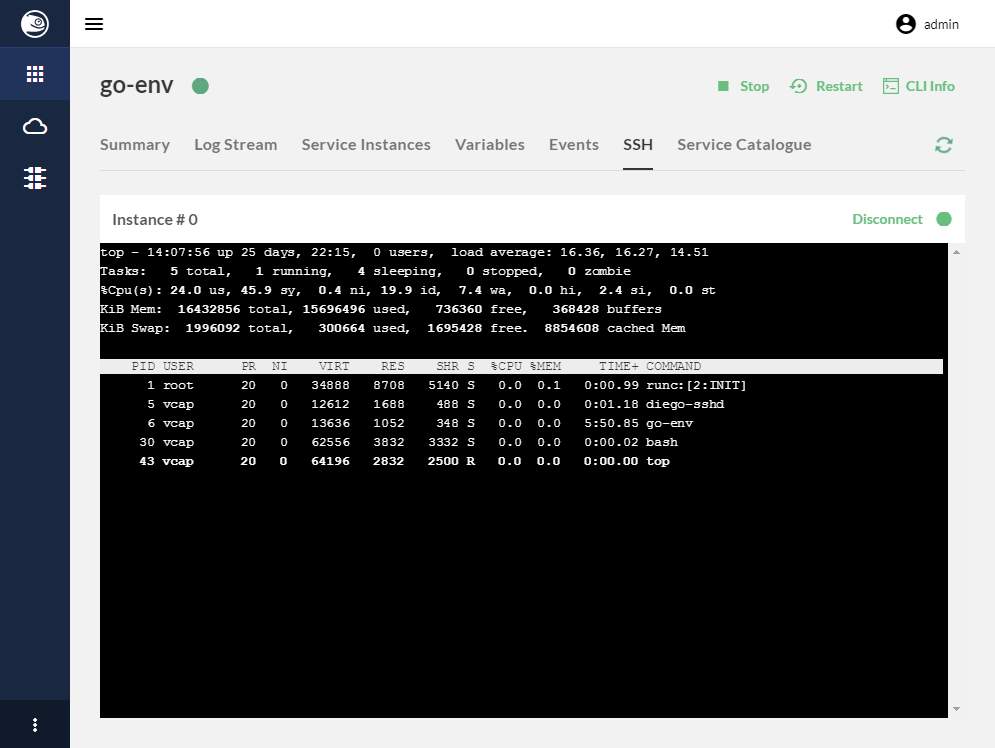 Summary view of a running application (Source)
Summary view of a running application (Source)For more on Stratos-UI, visit Neil’s introductory blog post at SUSE.
Diego
Pivotal’s Eric Malm commented on how the “Diego team is now running in an environment where Consul is entirely removed.”
He also reported on an ongoing collaboration with the Garden development team to “finish out and ensure integrity of connections from the Go Router application back ends.” He also mentioned that there’s only one router bug left that needs to be resolved before “we can recommend turning it on experimentally in some environments.”
“We’re relying on BOSH DNS for service discovery.” —Eric Malm, Pivotal
Garden
Garden is shifting to unpriviledged containers explained IBM’s Julian Friedman (aka Dr. Julz). “Garden is all about not needing roots at runtime so we’re about to enable that,” said Dr. Julz. “The main upshot is that it’s finally time to get off priviledged containers because we will no longer have the ability to create them.”
He also emphasized how much better unpriviledged containers are for security.
Buildpacks
Nginx buildpacks are being introduced soon said Pivotal’s Stephen Levine.
“We’re also going to send an email out soon about what the next distribution of RootFS will look like and what timeline is there for it to be available so people can migrate over,” said Stephen.
Service API
Server instance sharing is almost ready. “Async bindings designs have been agreed upon with the Open Service Broker API working group,” said Pivotal’s Matthew McNeeney.
Bits-Service
All featured functionalities have been completed explained IBM’s Simon Moser.
“We are starting to integrate with the proper pipleline with the help of the CF Release integration team,” said Simon. “Some time down the road, we might be able to make Bits-Service a default component in CF deployment.
Runtime PMC
Cloud Foundry deployment is on Pivotal Web Services fully.
“We’ve completely transitioned away from CF release on PWS,” said Pivotal’s Dieu Cao.
BOSH
Pivotal’s Danny Berger explained that the latest version of BOSH now includes “generic configs so you can get multiple configurations.” There are also security improvements around director and agent communications.
“We’re looking to finish up basic support for IPv6 in stemcells,” added Danny.
“We’re working on bringing in Xenial stemcell.” —Danny Berger, Pivotal
Open Service Broker API
Google has launched a service catalog installer for Kubernetes. There’s also a proposal to add a validation tool for service brokers to the Open Service Brokers API project.
The community is growing commented Pivotal’s Alex Ley with 325 users joining the Open Service Broker API slack channel. There’s also an upcoming face to face event with the PMC group at Red Hat Raleigh, North Carolina on November 28 and 29.
Open Service Broker API’s GitHub repo
CF Extensions
The Service Fabrik project which was highlighted in the September CAB call has been accepted, according to Dr. Max. There’s also a proposal coming up for CF-Scheduler.
CF Abacus v1.0 has been released with v2.0 inception planned for November 23.
Next year’s summit
The Cloud Foundry Summit 2018 for North America will be held at Boston, Massachusetts on April 18–20. The nominations for Cloud Foundry Co-chairs have just ended. The Foundation’s new community director, Swarna Podila reminded callers that there’s still a few weeks before the call for papers close. The deadlines for submissions are on December 8.
The next CAB call is scheduled on Wednesday, December 20. The call begins at 8 a.m. Pacific Time. Anyone interested can join the Cloud Foundry’s CAB Slack channel.















